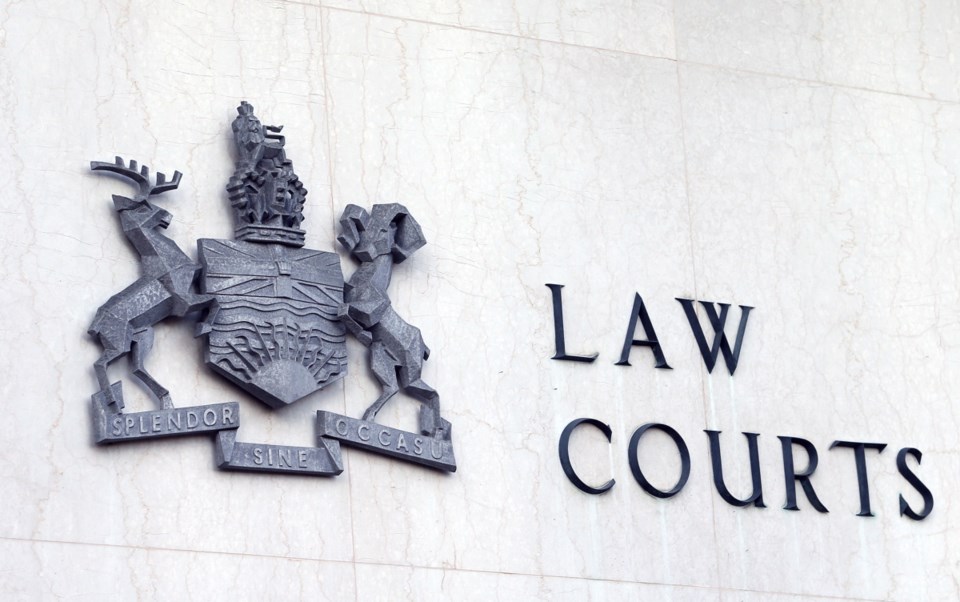The family of a former lawyer left cognitively impaired after an attempted suicide hopes their tragic story informs others of the seriousness of a first psychotic break and how it should be treated.
Joseph Briante, 32, attempted suicide just days after he was discharged from Royal Jubilee Hospital’s psychiatric emergency services on Oct. 29, 2007, without the family who brought him there being interviewed and without seeing a psychiatrist.
B.C. Supreme Court Justice Keith Bracken ruled that the psychiatric nurse, an emergency room physician and Island Health were negligent in the assessment and treatment of Briante but could not be blamed for his life-altering suicide attempt days later.
“The best that can be said is that the referral might have made a difference,” Bracken concluded.
Briante and his family argued in court that had Briante been properly assessed and treated, he would not have gone on to attempt suicide days later. The judge disagreed.
The family is considering an appeal. In the meantime, there are valuable lessons to be learned, the family says.
Robert Cameron, the family’s lawyer, said Briante had suffered a break from reality and was terrified, paranoid and in tremendous distress the afternoon his family took him to Royal Jubilee.
Testimony from experts revealed that just as a sudden-onset headache might indicate a brain bleed or a tight chest might indicate a heart attack, a so-called “first-break psychosis” can be treatable and allow patients to carry on with productive lives and employment. Left undiagnosed and untreated, that first-break psychosis has the potential to become much worse, the court heard.
Psychiatrist Dr. Anthony Barale testified that: “Psychotic symptoms are inherently unstable and liable to rapid and unpredictable changes.”
The Briantes hope that with better public awareness of the seriousness of first-break psychosis, “these patients will have a better chance of receiving the treatment they require in order to have the positive outcomes prognosticated by [Dr. Ian Gillespie and Barale during the trial],” Cameron said.
Briante was a high-functioning lawyer whose life began to spiral in the summer of 2007. By October, his mental health was deteriorating rapidly. On Oct. 29, he became delusional and paranoid, including fears of being monitored, sacrificed or killed, his family stated in court documents.
They rushed him to Royal Jubilee Hospital specifically to access its psychiatric emergency service. They arrived at 4:50 p.m.
Briante told the triage nurse that he felt as if he was having a nervous breakdown.
After an 18-minute interview, the psychiatric nurse concluded — without interviewing the family — that Briante’s mental health issues were likely the result of his drug use and, in particular, that Briante was in some stage of withdrawal from his admitted drug use a few days earlier, the judge wrote.
When presented with the Psychiatric Emergency Services manual in court, the psychiatric nurse agreed that one of the criteria for admission to hospital is an indication of a “first-break” or first-presentation psychosis.
Dr. Adam Oster, an expert emergency room physician, testified that any patient displaying psychotic symptoms requires a psychiatric consult and that this is especially the case with new symptoms.
Expert psychiatrists testified that at the very least Briante should have seen the on-call psychiatrist and possibly been admitted or given medication.
Instead, at 7:30 p.m. Briante was given information and referred to an out-patient counselling service in the community.
His parents noted their dissatisfaction. Beds were available.
Days later, on Nov. 4, Briante slashed and stabbed his neck and arm several times, resulting in severe blood loss and cognitive impairment.
Now, he can’t live alone without assistance. The community-based counselling program called after the fact, the court heard.
Briante said later he didn’t know why he slashed at his throat with a kitchen knife, but he testified that when the blood started to flow, he felt euphoric, said his lawyer Robert Cameron.
“Cutting himself with the kitchen knife gave him relief for the first time in days,” Cameron said.
“The evidence at trial was that a first-break psychosis is to be distinguished from acute suicidality and that it is a psychiatric emergency.”
Gillespie has been a medical director and psychiatric director of Royal Jubilee Hospital and practised in Victoria for the past 37 years.
He said in court that Briante was experiencing a “psychosis with paranoid persecutory delusional ideas present” and that on recovery from proper treatment — possibly involving involuntary hospitalization and medication — “in a large majority of these cases the patient will recover fully” depending on the root cause.



